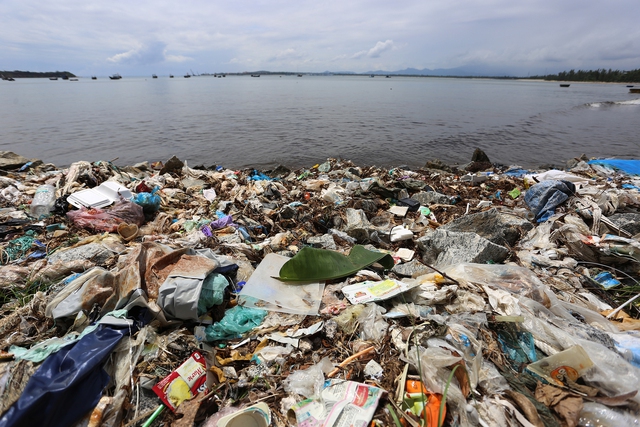Viet Nam needs US$8-9 bln to address plastic waste in next five years
VGP - Viet Nam needs approximately US$8–9 billion in financing over the next five years to achieve the targets of reducing plastic leaching by over 43 percent and marine plastic waste by 75 percent by 2030.

The above funding amount was released at a conference on reviewing the implementation of the National Plastic Action Partnership (NPAP), jointly held by the Ministry of Agriculture and Environment and UNDP in Ha Noi on July 9.
UNDP Resident Representative in Viet Nam Ramla Khalidi said, since its launch in 2020, the NPAP program in Viet Nam has connected over 200 organizations and supported more than 160 plastic pollution reduction projects. The initiative has promoted over 570 innovative solutions and mobilized more than US$1 million in total investment.
Khalidi affirmed that, as the lead agency for the NPAP program in Viet Nam, UNDP vows to advance this multi-stakeholder and multilateral partnership platform and support the activities of the partnership group in the second half of 2025 to realize Viet Nam's commitments to reducing plastic waste and plastic pollution.
The occasion, the NPAP Policy Technical Working Group was debut, which is designed to promote alignment across legal frameworks related to plastic action and circularity. The group brings together 15 members, including policymakers, businesses, researchers, and development partners.
Deputy Director of the Department of Environment and Head of the NPAP Policy Technical Working Group in Viet Nam Ho Kien Trung stated that in the coming period, the group will work closely with NPAP's two existing technical working groups—innovation and finance, and gender equality and social inclusion—to strengthen an integrated and comprehensive approach to tackling plastic pollution in Viet Nam.
The group's activities aim to reinforce the necessary policy foundation for long-term, systemic change and contribute to Viet Nam's commitment to building a sustainable circular plastic economy.
According to estimates by the World Bank, Viet Nam generated 3.7 million tons of plastic waste in 2018. This figure is projected to rise to 7.6 million tons by 2030. However, only about 0.4 million tons of this waste is recycled, while the majority is burned, dumped, or landfilled./.
